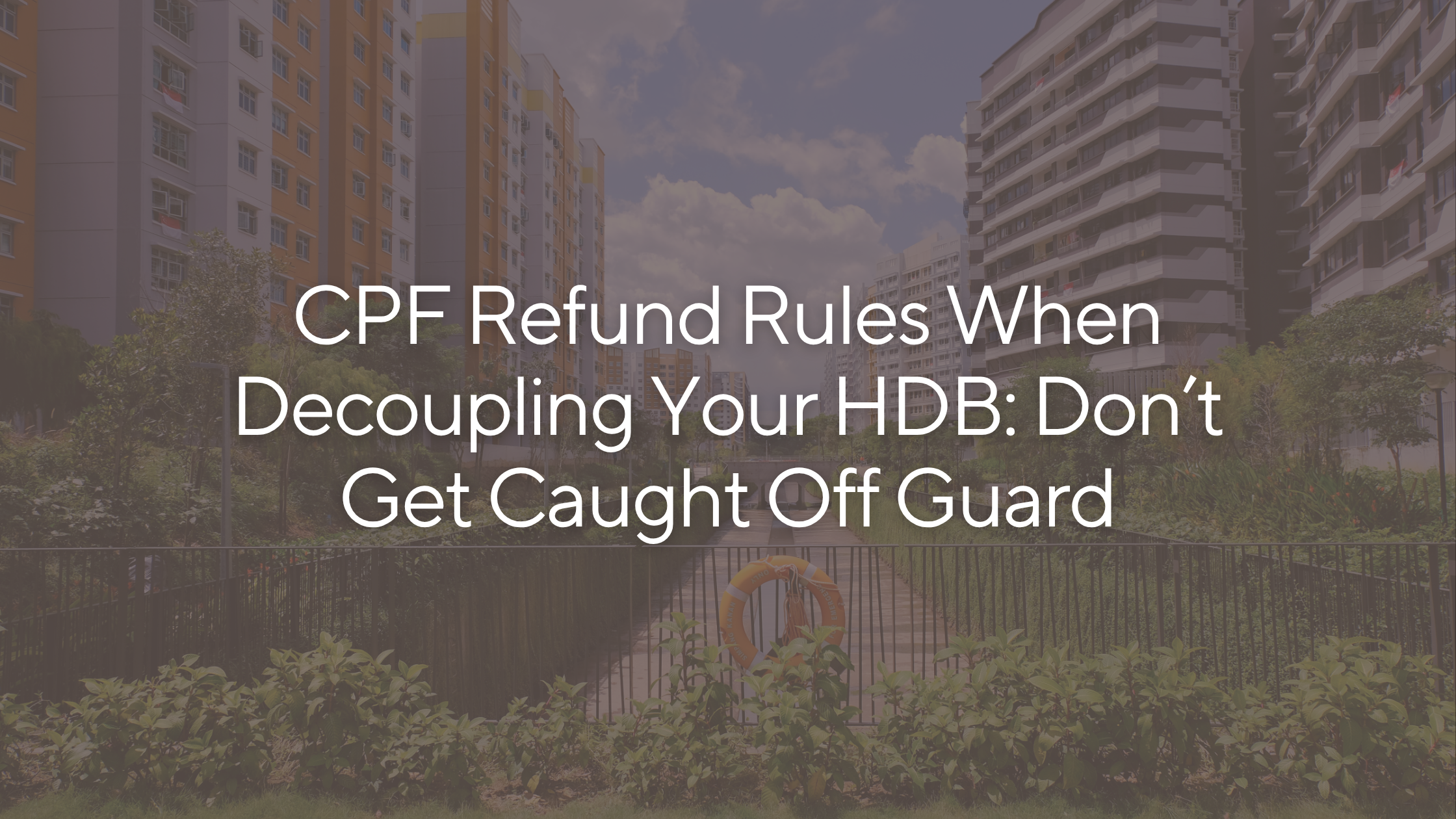CPF Refund Rules When Decoupling Your HDB: Don’t Get Caught Off Guard
You can no longer decouple an HDB flat unless through divorce. In such cases, CPF refunds are mandatory for all funds used plus accrued interest. For ECs, which can be decoupled after 5 years, CPF refund rules also apply—whether through a Sale & Purchase agreement or a gift transfer. A decoupling lawyer can help calculate refund amounts, manage paperwork, and prevent costly mistakes.
If you’re exploring decoupling HDB in Singapore, it’s important to know that HDB no longer allows ownership transfers purely for avoiding Additional Buyer’s Stamp Duty (ABSD). The only way to “decouple” an HDB flat is through a divorce order. However, Executive Condominiums (ECs) can still be decoupled after meeting the 5-year Minimum Occupation Period (MOP), when they are treated as private property.
In both divorce-related HDB transfers and EC decoupling, the CPF refund rules are strict—and overlooking them can stall or derail your transaction.
Key Takeaways
CPF refund = returning all CPF monies used for the property purchase + 2.5% annual accrued interest.
For HDBs, CPF refunds apply only when a transfer is ordered in a divorce case.
For ECs, CPF refunds apply when decoupling through S&P or gift after the 5-year MOP.
Gift transfers often require more cash upfront because no sale proceeds are available.
A decoupling lawyer ensures CPF refunds are calculated and submitted correctly.
What Is a CPF Refund in Decoupling?
A CPF refund is the repayment of:
Principal – the amount withdrawn from CPF OA for the property purchase
Accrued interest – 2.5% per year as if the funds had remained in CPF
Refunds must be made back into the seller’s or outgoing party’s CPF OA before the ownership transfer is finalised.
CPF Refund Rules in Different Situations
1. HDB “Decoupling” Through Divorce
When the court orders a transfer of ownership in a divorce, CPF refunds must be made.
The outgoing owner must refund all CPF monies used plus accrued interest.
If there are insufficient sale proceeds (for example, in a buyout situation), the shortfall may not need to be topped up if the transfer is valued at market price.
2. EC Decoupling After 5 Years (Private Property Rules Apply)
a. Sale & Purchase (S&P) Agreement
One party buys the other’s share, and CPF refunds are made from sale proceeds.
If proceeds are insufficient, no cash top-up is needed if the sale is at market value.
b. Gift Transfer
Ownership is transferred without payment.
Both owners must refund all CPF monies used plus accrued interest in cash if no proceeds are available.
This often makes gift transfers more cash-intensive than S&P agreements.
Common Issues That Delay CPF Refunds
Outstanding housing loans not cleared or refinanced
Miscalculations of CPF usage and accrued interest
Delayed submissions to CPF Board
Disputes over market valuation in S&P transfers
Why You Need a Decoupling Lawyer
A decoupling lawyer ensures your CPF refund obligations are met by:
Calculating CPF refunds accurately
Advising whether S&P or gift is more suitable for EC owners
Handling CPF and HDB/EC paperwork without errors
Coordinating between CPF Board, HDB (for divorce cases), and banks
Related Reading
Decoupling HDB in Singapore: Complete Guide to Avoiding ABSD and Unlocking Your Second Property
S&P vs Gift: Which EC Decoupling Method Works Best?
Do You Need a Lawyer to Decouple Your HDB? Here’s What They Actually Do
Need Help With CPF Refunds?
At YY Lee & Associates LLC, we guide clients through CPF refund obligations during property transfers, whether in HDB divorce cases or EC decoupling. Our team ensures documents are accurate, deadlines are met, and your rights are protected.
📞 +65 8780 2499
📷 Instagram: @yylee_familylaw
FAQ
-
Only in a divorce transfer. HDB no longer allows voluntary decoupling.
-
No, CPF refund is mandatory for both S&P and gift transfers.
-
In an S&P transaction at market value, no cash top-up is needed if proceeds are insufficient. In a gift, you must cover the shortfall in cash.

